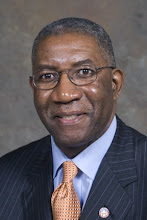©Wendell Griffen, 2010
What if you were required to pass through a scanning device any time you drive on a public highway? Would you consider that requirement intrusive? Would you object to being scanned and insist that government agents have some specific factual basis indicating that you pose a risk of harm to others before they interfere with your travel and scan your body and effects?
Would you object less if required to permit government agents to frisk you and rummage through your belongings before you can travel? Are body and container scans and frisks justifiable because people use the highways to commit crimes?
If you value your freedom to travel without mindless suspicion and your right to privacy, you should find this hypothetical disturbing. Yet this process happens every day to every person engaged in commercial air travel in the United States. All persons who board a commercial airplane must first submit to body scanning. The latest body scanners provide images in graphic anatomical detail that are viewed by a TSA employee. Some frequent air travelers are concerned about the health risks associated with undergoing routine body scans.
Persons unable or unwilling to submit to the full body scanners must submit to pat-down frisking similar to that performed by law enforcement agents on suspected criminals. Many persons, including Secretary of State Hillary Clinton, have expressed objections to the pat-down searches.
However, there has been no reported outcry about the requirement that every person seeking to board a commercial airplane be scanned. TSA personnel needn't have a reason to scan or frisk other than the fact that a person is travelling by commercial airliner. Persons traveling from private airports are not required to be scanned, frisked, or otherwise detained for surveillance and search before they board aircraft.
When a government requires people to be searched without any objective indication that they pose a danger to others, one usually associates that activity with a "police state." If freedom and personal dignity mean anything, people have the right to be left alone by others (including the government) unless there is a specific reason to interfere with that right.
Yes, we live in a world where people carry dangerous objects onto airplanes, including box cutters in their carry-on items and explosives in their shoes and underwear. We can't ignore that some people want to hurt others.
But is it fair and right to conduct surveillance, scan, and search every airline traveler like a potential terrorist? If so, what is left of the Fourth Amendment guarantee that the right of the people to be secure in their persons, houses, papers, and effects, against unreasonable searches and seizures, shall not be violated?
Searches that lack an objective basis for suspecting the persons searched to be dangerous may be thorough and efficient. Such searches may cause public officials and travelers to feel "safe." However, the searches are not based on reasons to suspect that a traveler is dangerous. Governmental efficiency and irrational fear of strangers do not constitute legally valid reasons to treat people as criminals or enemies.
The airport screening issue involves the fundamental moral concern of whether we'll treat people we don't know as neighbors or enemies. Is the woman ahead of me my neighbor or my potential murderer? What reason do I have to suspect her as a murderer?
Am I justified to consider her more dangerous than myself because I don't know her? Is my suspicion because her clothing, language, ethnicity, or some other obvious feature differs from mine?
Would I be offended if she accused me of being a criminal and insisted that I be searched merely because she doesn't know me? And if I deserve to be treated as a neighbor unless there are objective reasons for suspecting me to be an enemy, shouldn't she and anyone else be entitled to the same neighborly treatment?
In his classic work, Jesus and the Disinherited, Howard Thurman named fear, hate, and hypocrisy (deception) "hounds of hell" that prevent people from creating community. And Fred Craddock reminds us that how we treat strangers is a question on life's final exam (Matthew 25:31-46). Judging from the TSA airport screening process, we're not creating community and we're flunking the final.
Religious leaders and congregations haven't addressed the moral implications surrounding airport screening. Terrorist attacks and threats don't trump justice for strangers. 9-11 didn't change the final exam.
Friday, December 3, 2010
Subscribe to:
Post Comments (Atom)

2 comments:
I find the current climate and the actions being taken VERY disturbing. I've seen it compared to pre-Nazi Germany. As one who fears the Lord and not man, it is incumbent upon me to fight evil and continue to fight evil at every turn. "Who must do the hard things? He who can." I accept the challenge.
I find the current climate and the actions being taken VERY disturbing. I've seen it compared to pre-Nazi Germany. As one who fears the Lord and not man, it is incumbent upon me to fight evil and continue to fight evil at every turn.good and nice share.cheap Gatwick Parking
Post a Comment